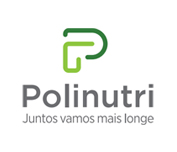
Notícias
Produtores brasileiros ainda prevêem cenário positivo para 2021
Brazilian Premix Producers Still Forecast Positive Scenario for 2021
Brazil’s feed association, Sindiracoes, forecasts a growth just below 3% for premix production in 2021, with volumes jumping from 418,529 tonnes in 2020 to 430,372 this year.
Carvalho said many of its clients are re-evaluating their bovine confinement operations due to the rising costs
of feed. And with more cattle in open pastures, less premix is being used by cattle producers.
“If the cattle market does not react… does not grow, premix production will not increase,” Carvalho said. Despite surging costs of feed raw materials and a devaluated currency, Brazilian premix producers are still confident that the segment will register positive results in 2021 and 2022.
“Our plant right now can stand a 40% growth in premix production, and we are predicting a 25% production increase already in 2021,” Marco Pedrosa, marketing manager at Alpha Animal Nutrition told Feedinfo. Pedrosa said in 2022, if market behaviour is positive and Brazilian and global meat production increase, Alpha may be producing at full capacity.
With most of its premix business catering to the B2B segment, the company has one premix plant located in Sete Lagoas, Minas Gerais state, and sells its premix product nationally. In 2020, Alpha produced 800 tonnes of premix products. “We are very optimistic with the ruminant segment,” also said Poli-Nutri operations director, Humberto Saad.
“We are expecting revenues from premix for ruminants to grow by over 30% this year,” he told Feedinfo. The company has already started building another plant in Minas Gerais to produce premix. The new plant will cater to the northern part of the state and to Goias. “One of our marketing strategies this year is to expand our coverage of premix sales,” he explained.
Poli-Nutri already has three units which produce only premix, one in the northeastern part of the country, in Ceara state, and two in the southern Santa Catarina and Parana states. But if the Poli-Nutri executive is very optimistic about premix for ruminants, the same can’t be said for chicken.
“We are expecting a decline in chicken production this year, and with it a decline in feed and premix sales,” he added. According to Saad the cost of raw materials to produce feed and premix have surged, making poultry producers conscious about investing too much in production.
The increased cost of raw materials is also the reason given by Fernando Carvalho, technical director at Matsuda, for many to expect a rather disappointing year for the premix segment.
“I have been in this business for 38 years and I have never seen a surge in prices of microminerals like I’ve seen recently,” he said. According to Carvalho the price of raw materials for premix production rose two to three times in US dollar value in the past few months. “The world has lost its perception of what is inexpensive and what is expensive,” he commented.
FALE CONOSCO
Preencha o formulário ou entre em contato com uma de nossas unidades:
ESCRITÓRIO CENTRAL - SP - (11) 2101-0201
ITAPEVI - SP
 11 98416-0579
11 98416-0579

CERTIFICAÇÕES









